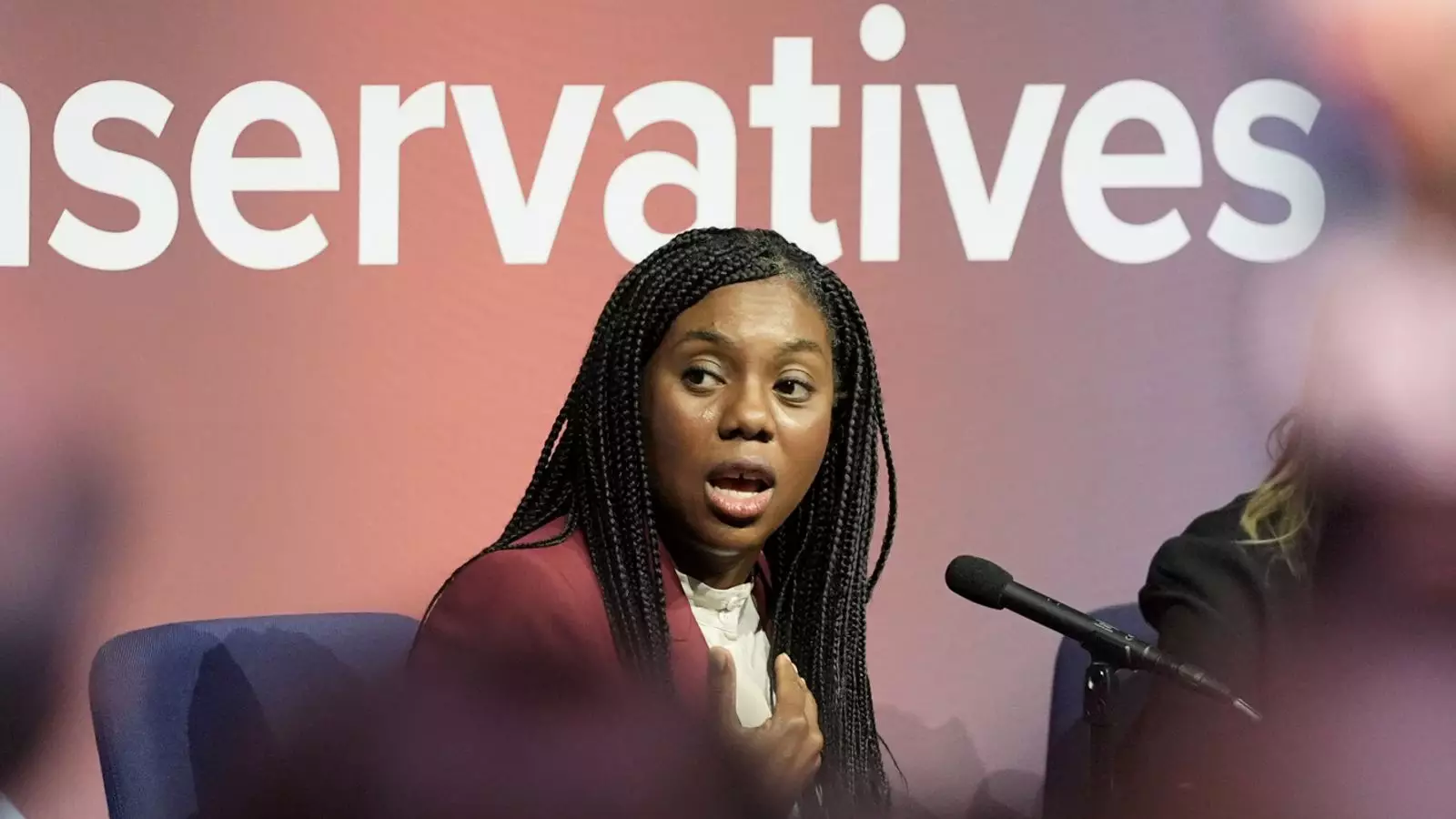The political landscape in the United Kingdom is often marred by sensationalized statements and divisive rhetoric, as evidenced by Kemi Badenoch’s recent comments regarding civil servants. The Conservative leadership contender’s assertion that 5-10% of civil servants are “very bad” and should be imprisoned for leaking information has ignited a firestorm of debate. This controversy underscores the broader implications of such remarks on the ongoing culture war, the perception of civil service, and political accountability.
Badenoch, speaking at a fringe event during a Conservative Party conference, made strong claims that certain civil servants are guilty of actions severe enough to warrant imprisonment. This characterization not only paints a grim picture of the civil service but also raises important questions about the integrity and the operational dynamics within governmental departments. The general secretary of the FDA union, Dave Penman, was quick to challenge such assertions, emphasizing the need for evidence to substantiate such serious accusations. His demand for proof reflects a broader need for accountability in political commentary, especially when it has the potential to tarnish reputations and instigate distrust among the public and within the governmental structure.
Badenoch attributed this alleged misconduct to a small but significant portion of civil servants, even suggesting that these individuals were driving a wedge between ministers and their staff. This narrative of the civil service being infiltrated by “bad apples” plays into a detrimental stereotype, one that calls into question the commitment of public servants to their roles. As she noted, the majority of civil servants are dedicated individuals who are frustrated by the actions of a minority. However, framing the issue around criminality trivializes the complexity of public service and undermines the professionalism that most civil servants bring to their roles. Moreover, the assertion, if left unchallenged, could foster an adversarial environment that hampers collaboration between government officials and civil servants.
Badenoch’s remarks have been contextually situated within a larger culture war narrative, which is increasingly becoming a staple in political campaigning. Using charged language to evoke a strong emotional response, such as suggesting that civil servants should face imprisonment, is not merely a slip of the tongue; it represents a strategic political maneuver aimed at galvanizing support among a base that resonates with anti-establishment sentiments. In British politics, this tactic is gaining traction as candidates seek to differentiate themselves in a crowded field, showcasing a willingness to adopt hardline positions to capture voters’ attention.
However, resorting to incendiary rhetoric may be counterproductive. As evidenced by Penman’s response, there is significant pushback from those within the civil service who view such comments as irresponsible and unfounded. The resultant backlash could alienate moderate voters who may disapprove of the tone and implications of Badenoch’s statements. It implies a widening gap between politicians who employ inflammatory rhetoric and those who seek to promote constructive dialogue within political discourse.
As Badenoch vies for leadership alongside other candidates such as Robert Jenrick and James Cleverly, her approach as a “straight talker” positions her as a candidate willing to disrupt the status quo. However, this self-styled image might, in light of these comments, lead to questions regarding her suitability for leadership. The role of a leader requires a discerning ability to navigate complex issues with a balance of firmness and sensitivity, assessing the wider ramifications of public statements.
The public’s current perception is also under scrutiny; while Badenoch enjoys popularity among certain Conservative bases, ongoing polling reflects a competitive landscape. Critiques regarding her previous comments on maternity pay illustrate how easily a candidate can become embroiled in controversies that overshadow their core messages and distract from their qualifications.
Kemi Badenoch’s comments concerning civil servants illustrate the potent combination of political aspirations, public sentiment, and the culture wars that permeate today’s political arena. While aimed at establishing herself as a formidable contender for leadership, these remarks also risk deepening divides and detracting from substantive policy discussions. The necessity for responsible political communication is evident, as candidates navigate the delicate balance between asserting their positions and fostering a united public service environment.


Leave a Reply